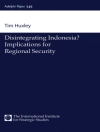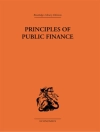Mass communications and advances in communications technology pose fundamental challenges to the traditional conduct of diplomacy by reducing hierarchy, promoting transparency, crowding out secrecy, mobilizing global social movements, and increasing the importance of public diplomacy in international relations. But the primary source of change, the force that acts as a common denominator and accelerates other changes, is communications and information technology (CIT). Where nations were once connected through foreign ministries and traders, they are now linked to millions of individuals by fibre optics, satellite, wireless, and cable in a complex network without central control. These trends have resulted in considerable speculation about the future of diplomacy. Contributors include Andrew F. Cooper (University of Waterloo), Ronald J. Deibert (University of Toronto), Eytan Gilboa (Holon Institute of Technology and Bar-Ilan University, Israel), Steven Livingston (George Washington University), Evan H. Potter (Universty of Ottawa), Gordon Smith (University of Victoria), Peter J. Smith (Athabasca University), Elizabeth Smythe (Concordia University College of Alberta), and Allen Sutherland (Government of Canada).
Evan H. Potter
Cyber-Diplomacy [PDF ebook]
Managing Foreign Policy in the Twenty-First Century
Cyber-Diplomacy [PDF ebook]
Managing Foreign Policy in the Twenty-First Century
Cumpărați această carte electronică și primiți încă 1 GRATUIT!
Limba Engleză ● Format PDF ● Pagini 216 ● ISBN 9780773570368 ● Editura MQUP ● Publicat 2002 ● Descărcabil 3 ori ● Valută EUR ● ID 5836094 ● Protecție împotriva copiilor Adobe DRM
Necesită un cititor de ebook capabil de DRM












